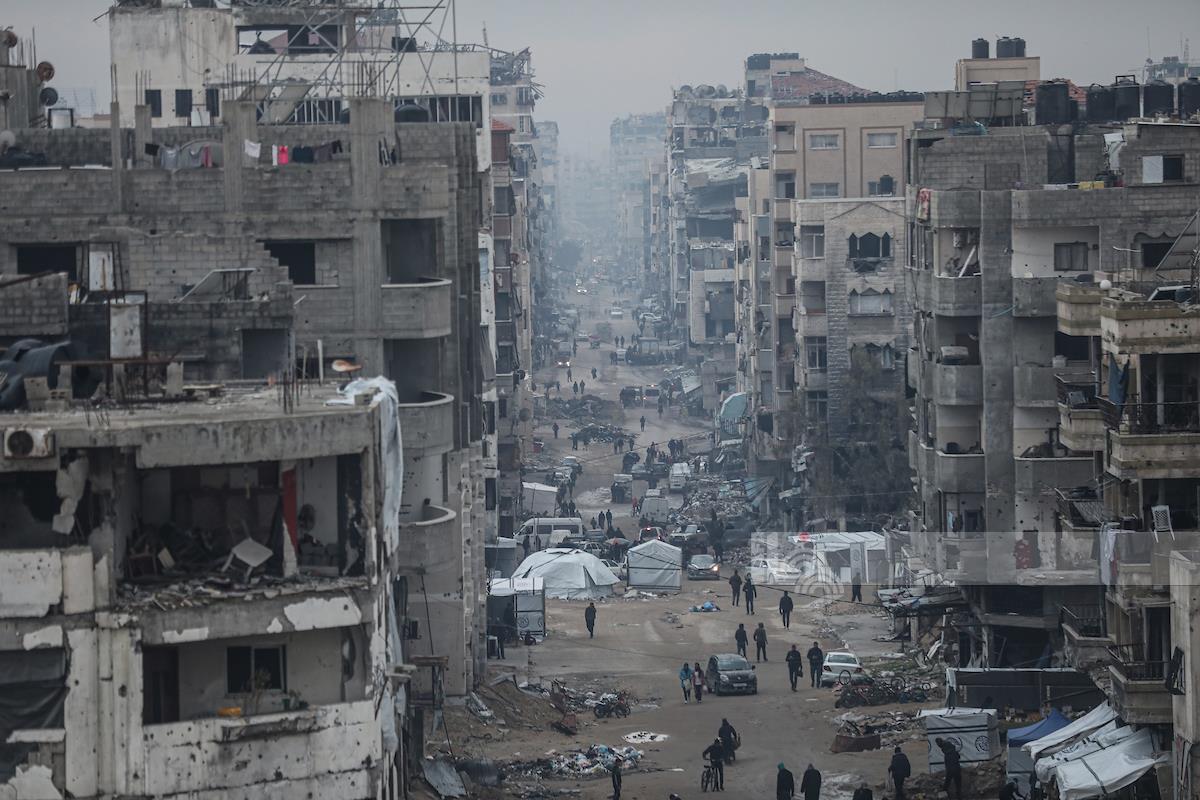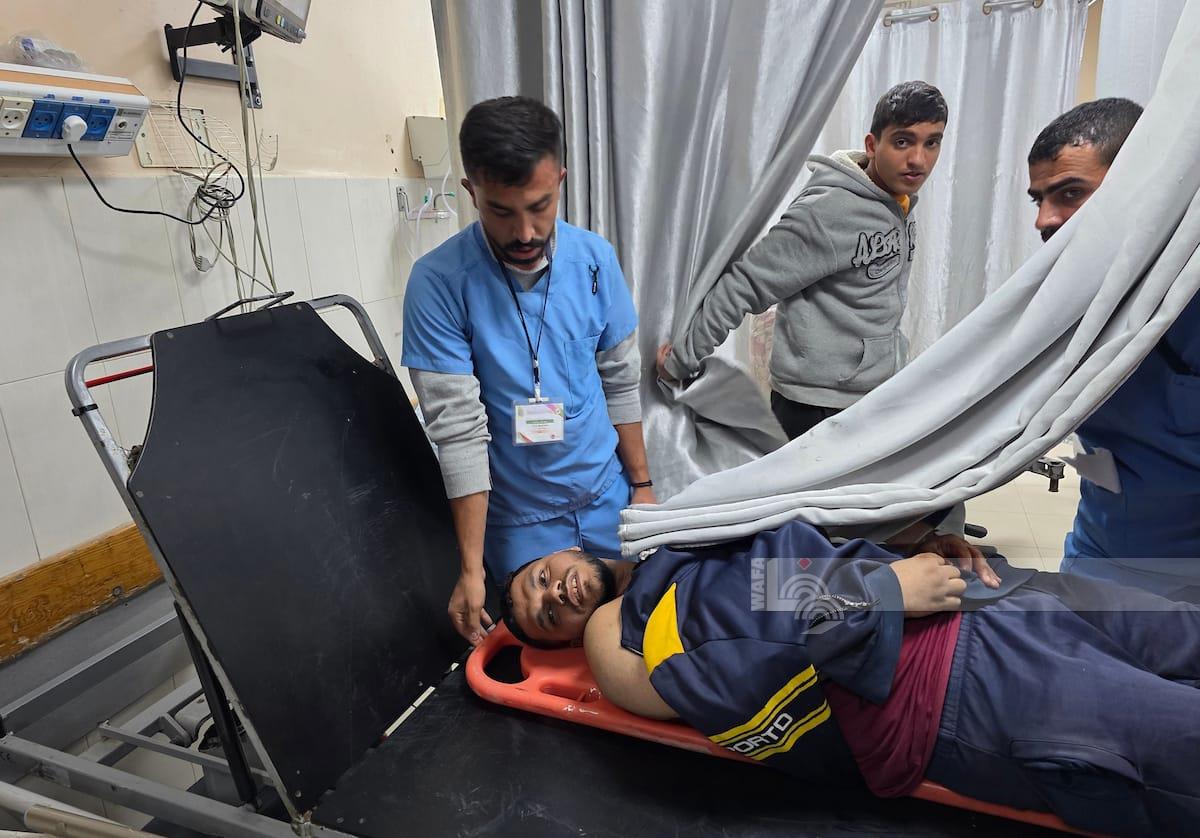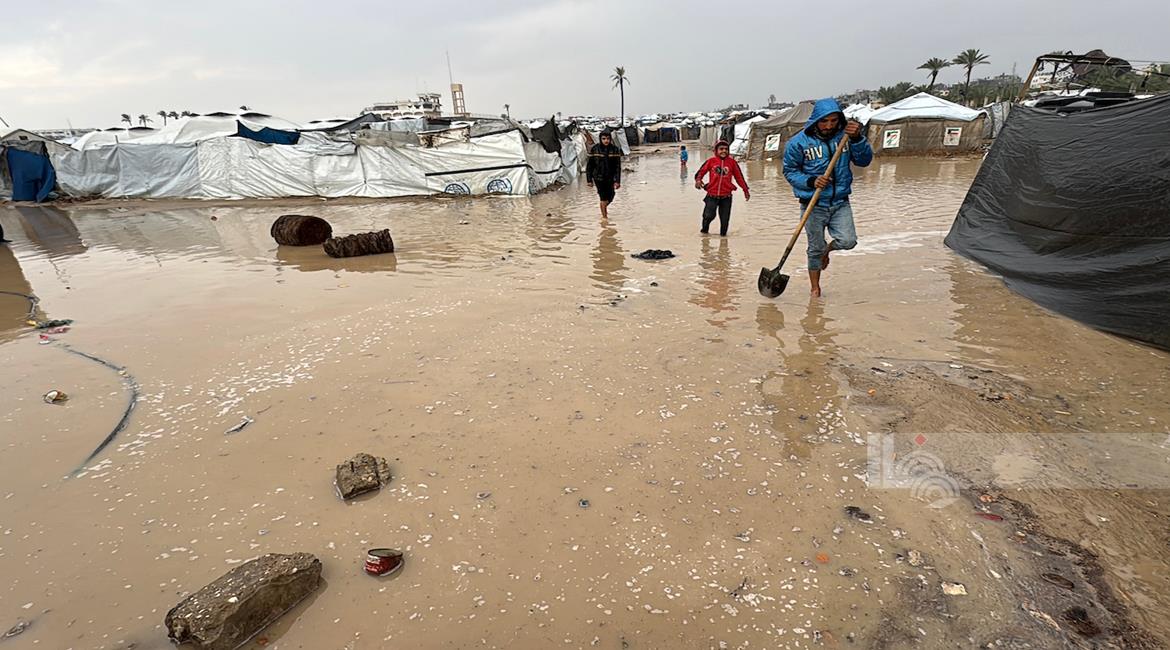By Mohammad Dahman
GAZA, November 23, 2025 (WAFA) – She begins her story with a sentence that feels like a wound: “I was screaming and no one heard me… I begged for death rather than remain bound beneath their hands. What they did to me no human could do, and what I cannot speak of is even worse.”
At 42 years old, A.N., a woman from northern Gaza, carries a testimony of torture, sexual violence, and the slow erasure of identity inside Israeli detention facilities. Her ordeal began on October 29, 2024, the day she was forcibly displaced from Beit Lahia, and ended more than a month later with her release—her body bruised, her hair shorn, and her name replaced by a number: 101.
What she recounts is, in her words, “another genocide, behind walls.”
Dragged into the machinery of abuse
From the first checkpoint where Israeli forces erected a military barrier inside Gaza, she was exposed to humiliation: blindfolded, stripped of her hijab, left in the cold on gravel, the only woman among 150 detained men.
The next day she and the others were pushed into two transport carriers “unfit for humans.” Soldiers beat them repeatedly and screamed insults—including curses directed at God and Islam—as they were taken to a military point near Sderot.
“It was only a stop,” she says, “on the road to much worse.”
In Sde Teiman, the now-infamous desert base, she was ordered to strip naked at gunpoint. When she raised her arms to remove her shirt, soldiers yanked off her blindfold—just long enough for her to see two of them filming her with their phones. Her hands were cuffed so tightly they bled. She was locked inside a cage too small to sit in. When she begged to relieve herself, soldiers refused. So she urinated standing, in front of everyone, amid their laughter.
Later, dogs were unleashed on the detainees in the yard. Forced to kneel for hours with their heads bowed, some were bitten. She shook uncontrollably and wet herself again from fear.
The so-called medical check came next. A man claiming to be a doctor asked if she had been beaten. When she said yes, he showered her with insults.
“Nothing resembled medicine. Nothing resembled humanity,” she says.
Interrogation followed—questions about tunnels, relatives, names. When she said she knew nothing, two soldiers beat her repeatedly on the back of her head. An intelligence officer promised release and protection if she cooperated, then threatened rape and harm to her family if she refused.
She refused.
The room no one leaves whole
On the third day, she was taken by four masked soldiers to a small room—four square meters—with a metal table bolted to the floor.
“It looked like a room designed for one purpose,” she says. “Torturing women. Raping them.”
Forced to undress, she was bound to the table. Two soldiers raped her while two others filmed. Cameras were already mounted on the walls.
She remained tied there, naked, for an entire day without food or water.
The next day they returned. Again they raped her. One lifted his mask, called himself Leo, said he was of Russian origin, and demanded sexual compliance. When she refused, they beat her viciously.
She began to bleed. That night, her period began. She was left tied and bleeding on the table for hours.
“I lost any sense of time,” she says. “There was no night or day. There was only my number—101.”
Days later she was moved to a different torture room. Chains hung from the ceiling. A metal cross stood in the center. Ordered to strip again, she was suspended from her hands and feet while soldiers beat her chest until she felt she was suffocating. They showed her photos of her naked body, photos of the rape.
“If you don’t work with us, we will publish all of this,” they said.
She refused again.
They attached wires to her body and electrocuted her until she lost consciousness.
She woke to freezing water splashed on her skin.
A cell like a refrigerator
Her cell, she recalls, was “a refrigerator”: an air conditioner blasting at maximum cold, no mattress, no blanket. She was given one cup of yogurt and an apple per day. Because of her bleeding wounds and period, guards treated her with disgust.
On the fifth day, a soldier handed her a sanitary pad. It felt strange. When she placed it in the toilet-bucket, it began to fizz and emit a choking white smoke—“like burning chemicals.” She believes it was designed to injure her internally.
When guards returned and saw the smoke, they realized she had not used it. They screamed at her.
From one prison to another
On the sixth night, an officer calling himself “Captain Abu Ali” entered her cell. “You will sleep better in Damon Prison,” he said.
She did not.
At Damon, she says, beatings happened with no reason and at random. Some nights guards selected cells arbitrarily and assaulted everyone inside. The food was rotten. The stench unbearable.
She begged for medical treatment for her injuries from the rape. She was denied.
They sprayed pepper gas into the cells until the women collapsed or lost consciousness.
She spent 25 days in Damon before officers forced her to sign a declaration stating she had not been tortured or raped. They threatened to publish the videos if she refused.
She signed.
She was then transferred to the Moskobiyeh interrogation center in Jerusalem for one final day of beatings and insults—“as if each place competed to be worse,” she says.
Release: A number walks out
On December 6, 2024, A.N. was released at Karm Abu Salem Crossing. She wore the gray prison uniform. Her name was still not used—only “101.”
All her belongings—her jewelry, her gold ring, a necklace, and 4,200 shekels—had been taken.
Red Cross teams met her at the crossing. She told them everything. Then she was taken to Gaza’s European Hospital, her body marked with wounds that told the story for her.
A year later, she is still trying to come back to life. She receives psychological support through the ICRC. She admits she thought of ending her life more than once.
“I can’t sleep,” she says. “The nightmares take me back to those cold cells every night.”
Systematic sexual abuse of prisoners in Israeli jails
Palestinian human rights organizations have warned that atrocities committed against Palestinian prisoners and detainees in Israeli jails have exceeded imagination. Reports indicate widespread torture, starvation, medical negligence, and sexual abuse, including rape, with testimonies continuing to reveal new and increasingly severe details of the ongoing abuses.
Majeda Shehada, director of the Women’s Unit at the Palestinian Center for Human Rights (PCHR), told WAFA that detention conditions and methods of torture changed drastically after October 7, 2023, including systematic sexual abuse intended to break the will and personality of prisoners.
She emphasized that these abuses have lasting psychological impacts on family relations, particularly when sexual assaults are involved, affecting spouses and children deeply. Shehada stressed the need for intensive rehabilitation programs, including psychological, social, and legal support, as well as group therapy and experience-sharing sessions for families.
Israeli human rights group Physicians for Human Rights has reported that 94 Palestinian prisoners have died in Israeli custody over the past two years due to torture and denial of medical care, a number believed to be lower than the real total because of enforced disappearances since October 2023.
--
M.N













